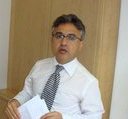
By Arian Mufid:
The people of the south of Kurdistan are suffering an ever-increasing sense of insecurity. A PUK (Patriotic Union of Kurdistan) civil war is looming and there appears to be no solution to this broken unity. When Jalal Talabani fell ill in December 2012 the only fear coming from the PUK leadership was of a breakdown of their authority with their members. Since then, with the absence of Talabani, the PUK has incurred heavy losses and for that reason the Talabani family and party politburo has never provided a true picture of his health. So, who is benefiting from the disunity of the PUK leadership? The gaps within the leadership are widening day by day over several issues.
At times the public have heard different statements on the same issue by different PUK committees and members of the leadership. Such confusion is frustrating for the PUK grassroots who are looking for straightforward answers to guide them through the vital dilemmas that lie ahead. This is not in the interests of the public. In effect, by depicting the PUK as powerless, they encourage challenges to its authority. For that reason, the only people benefiting from the PUK civil war are the KDP who have challenged them on several issues due to there being no PUK authority to properly respond. One section of the PUK – including Barham Salih, Najamadin Karim and Kadr Hama — advocates more cooperation with the Gorran movement, whilst the other faction wants to get closer to the KDP leadership after a reorganisation of the KRG cabinet. Both options would benefit the KDP (in the sense that the closer PUK-Gorran cooperation is aimed at drawing Gorran into a compromise with the KDP).
With a badly-divided leadership the party lacks confidence in its ability to make basic decisions. At this moment the only factor preventing the PUK leadership from collapsing and surrendering to the KDP is their strong grassroots, which are fundamentally against all deals with the KDP. The KDP benefits from the PUK civil war while the PUK has no control over the officially-exported oil income or authority over border decisions; this has been confirmed by PUK leaders on several occasions. The PUK leadership needs to do more to reform the party and resolve the disunity. They first need to take some leaders to court for corruption, deceit and wasting party money. Secondly, the party needs a general congress to elect a new leadership and revise its programmes.
.jpg)



